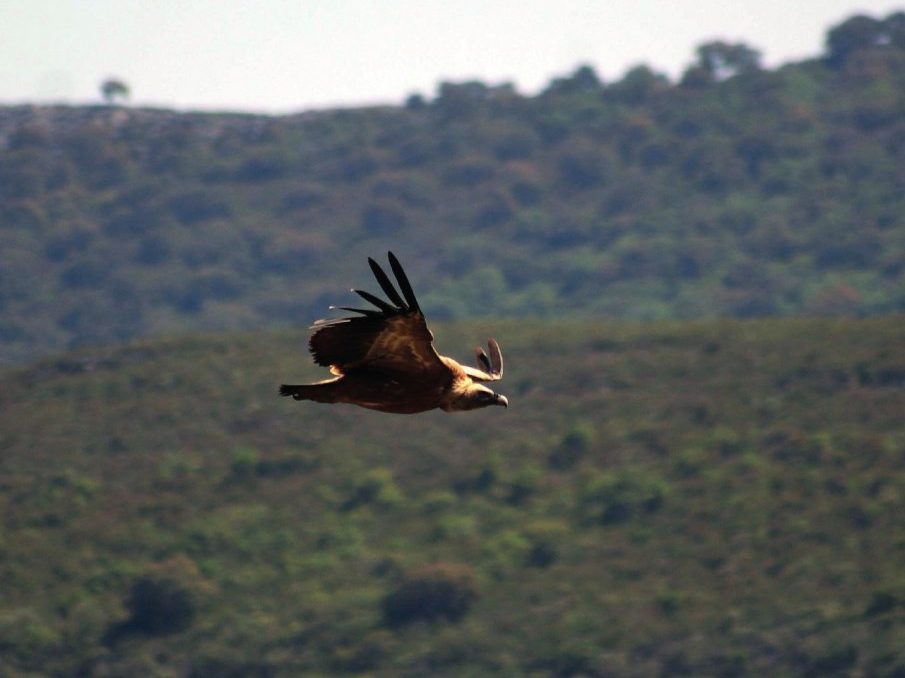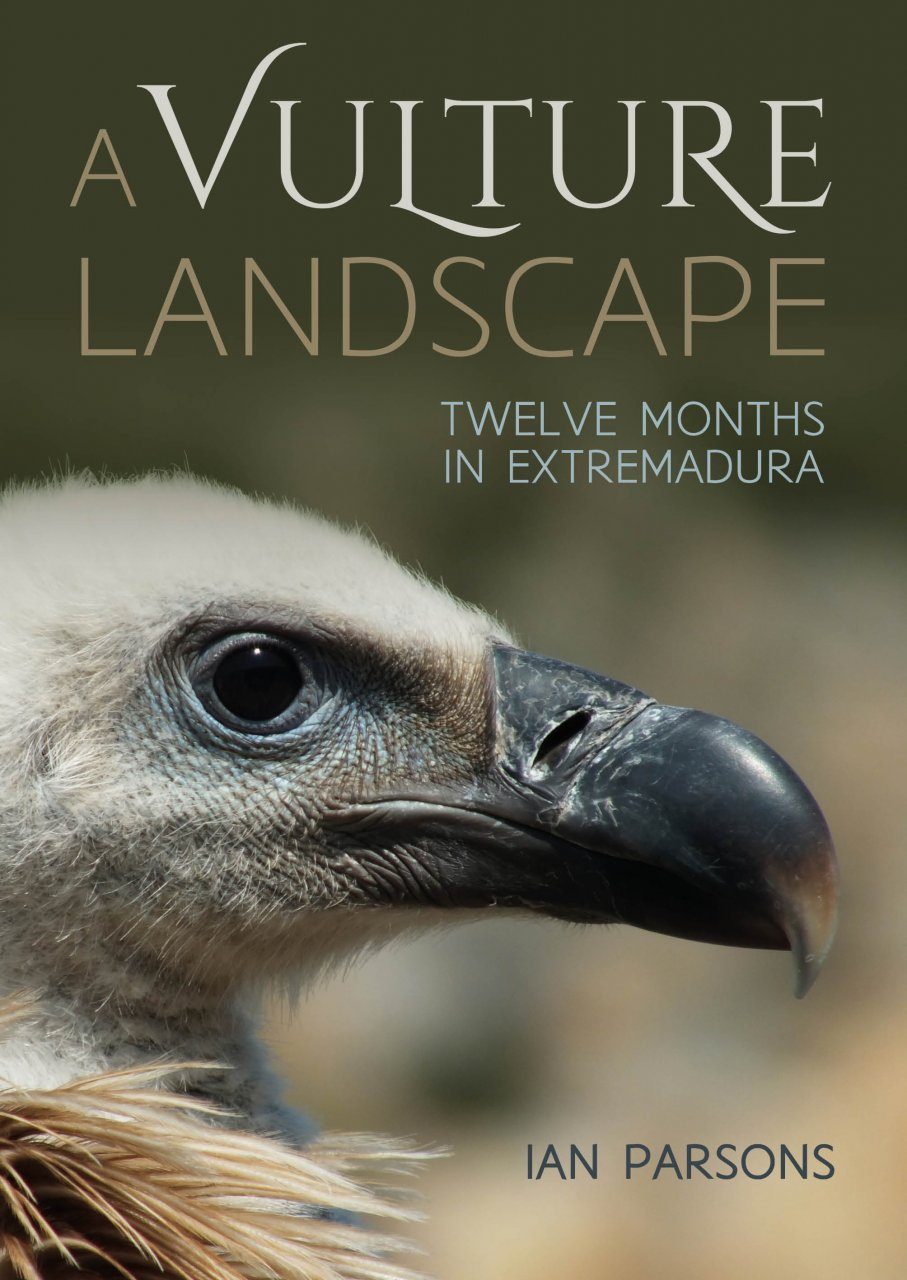 Vultures are a crucial part of many of the world’s ecosystems, and without these specialist environmental cleansers many ecosystems wouldn’t function. In A Vulture Landscape we share a calendar year in the lives of these gargantuan raptors as they live, breed, feed and fly with effortless ease across the skies of the vulture landscape that is Extremadura in central Spain.
Vultures are a crucial part of many of the world’s ecosystems, and without these specialist environmental cleansers many ecosystems wouldn’t function. In A Vulture Landscape we share a calendar year in the lives of these gargantuan raptors as they live, breed, feed and fly with effortless ease across the skies of the vulture landscape that is Extremadura in central Spain.
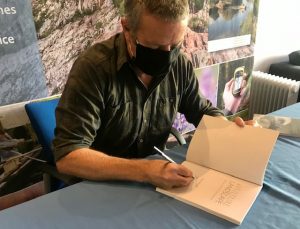
Author, Ian Parsons visited us at NHBS to answer some questions about these often maligned birds and also *signed a limited amount of copies of his new book.
*All signed copies have now sold
Could you tell us a little about your background?
I was born and grew up in Devon in south west England, as I grew up I became more and more interested in the natural world, I can remember becoming fascinated by slow worms when I was around seven years old, although I also remember my mum’s slightly horrified reaction when I happily brought one into the house to show her. I wanted to be a Ranger from an early age and after a countryside management course at college I became one for twenty years. When the time was right for a change, myself and my wife moved to Extremadura in Spain where we set up Griffon Holidays, running specialist bird tours in this amazing region that I had first discovered almost twenty years before.
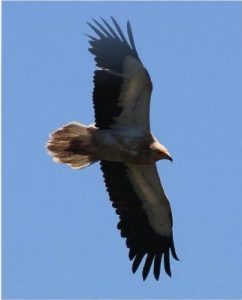
Why did you chose to write about vultures?
Because they are brilliant! I am a massive natural history fan and geek and I’m passionate about all types of wildlife, I would say that trees and birds are my two main interests and when it comes to birds there is nothing like a vulture. Watching birds with a nigh on three metre wingspan gliding right past you is an amazing experience, they are masters of the air and take flight efficiency to the extreme, they can read the air and its movements and to watch them is mesmerising. In the book I mention several times how my favourite past time is Vulture Gazing, just sitting back and watching them drift across the blue sky above you, it is a great way to declutter your mind, everyone should vulture gaze!
What’s special about Extremadura and its fauna and flora?
Extremadura is a region in western Spain, it is roughly twice the size of Wales, but with only one third of the human population, it is relatively empty of people and full of amazing wildlife. It has long been known as a bit of a destination for birders and rightly so. There are Great and Little Bustards, two species of Sandgrouse, colourful stars such as the Blue Rock Thrush, Roller and Bee-eater, NHBS’s very own Hoopoe is abundant and then there are the birds of prey, five species of eagle, three species of kite, falcons, harriers etc. And of course there are the vultures, the Griffon Vulture, Black Vulture and Egyptian Vulture, the skies always have something interesting in them.
Spending time on the flower rich plains in the spring listening to the wall to wall surround sound song track of abundant larks whilst raptors drift by overhead is one of life’s pleasures.
What were the major challenges you faced while writing your book?
I think the biggest difficulty is knowing when to stop! When you are passionate about something it is very easy to get carried away.
What impact has Covid had and will continue to have on eco-tourism?
It has had a massive impact. I had to cancel the tours for 2020 which were fully booked, personally it is heart breaking to have to tell people that their trip which they had been really looking forward to is off. But everybody knew why the decision had to be made. I always put the clients up in a lovely Spanish town in a local family run hotel, they are lovely people and they are having to endure a really bad situation. As to the future? Who knows, the situation is so unclear at the moment, it is impossible to make any real plans.
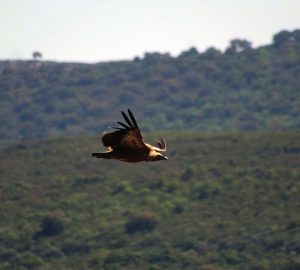
Is it fair to say that vultures have a bit of an unfair reputation?
Vultures are associated with death, it’s what they do, they are scavengers and they eat dead things. We humans don’t like the subject of death, we actively avoid it and therefore anything that is associated with it tends to be seen in a negative light. But vultures need to be seen in a positive light, many of the world’s vulture species are critically endangered, the last category before extinction, they are in that position because of us. Vultures do an incredible job, they are nature’s environmental cleansers and they help keep ecosystems healthy and functioning, they can deal with diseases like bovine TB, rabies and even anthrax, they remove these diseases before they can become a threat to us, they help keep people safe. We should celebrate them and most certainly enjoy them, I hope my book will go some way to helping improve the image of these brilliant birds.
Recently a Bearded Vulture has had an extended stay in Britain, is this normal?
It’s not normal, it is only the second time that one of these majestic birds has been recorded in Britain (in 2016 one briefly visited Devon and South Wales). Vultures are not native to Britain, the climate for one thing is not conducive to them and it is noticeable that after an extended stay in the Peak District the bird has started moving south and east again now that the seasons are changing. Their appearance is the result of some fantastic conservation work carried out in the Alps where the bird has been successfully reintroduced after being persecuted to extinction over one hundred years ago. The new population is absolutely booming, and wild born young are being born in good numbers each year, in 2019 39 young successfully fledged. Vultures like the Bearded don’t breed until they are around five years old and after they become independent the young birds like to wander. For a vulture, distance is rather irrelevant, they often fly several hundred kilometres in a day’s foraging, and it is one of these young birds that has turned up in Britain this year, but the bird is just an avian sightseer and hopefully it will return safely to its natural range before very long. Whilst it will remain unusual for these birds to turn up in Britain on their travels, the continued success of the conservation work in the Alps means that there will be a chance that other wandering young will follow in the future.
After a well-earned rest, are there any plans or works-in-progress that you can tell us about?
I am currently involved in a great new project that aims to rewild your inbox! Purple Crow sends out a mixture of great photography and great writing to your inbox throughout the week, the idea is to inspire people with stunning images and inspiring words, see purplecrow.co.uk for more details. Book wise I am working on a book looking at the wildlife of Britain through the seasons.
 A Vulture Landscape: Twelve Months in Extremadura
A Vulture Landscape: Twelve Months in Extremadura
By: Ian Parsons
Paperback | October 2020| £15.99 £17.99
Readers can enter the world of the vulture, get to know these amazing birds and learn how they control diseases that threaten us, why some species have bald necks, as well as how they have mastered the art of flying without expending any energy.
All prices correct at the time of this article’s publication.

